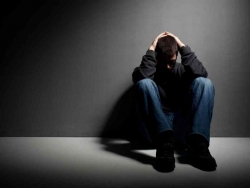- Feelings of guilt, worthlessness, helplessness, or hopelessness
- Loss of interest or pleasure in usual activities, including sex
- Difficulty concentrating and complaints of poor memory
- Insomnia or oversleeping
- Appetite changes, which may include weight gain or loss
- Fatigue, lack of energy
- Thoughts of suicide or death
- Slow speech; slow movements
You might also experiences other associated symptoms, such as anxiety, agitation, irritability, a worsening of pain or co-existing chronic illnesses, or physical complaints such as stomach aches, headaches, or digestive problems.
In children and adolescents, symptoms of depression may include:
- Insomnia, fatigue, headache, stomachache, dizziness
- Apathy, social withdrawal, weight loss
- Drug abuse or alcohol abuse, a drop in school performance, difficulty concentrating
- Isolation from family and friends
- For dysthymia, symptoms are less intense and fewer in number, but last longer.
Call Your Doctor About Depression If:
- You or a loved one have suicidal thoughts, or have other signs of either major depression or dysthymia; help is available.
- You are considering alternative or complementary treatments for depression. It's important that your doctor be aware of all aspects of your treatment.
NOTE: There is a distinct difference between feeling just sad or "depressed" and having a “clinical” depressive illness. If you have low spirits for a while, don't necessarily be concerned. However, if you feel you can't lift yourself out of your misery, or begin to notice other physical symptoms such as changes in sleep, appetite, or energy, seek help.
Taken from Web MD.
